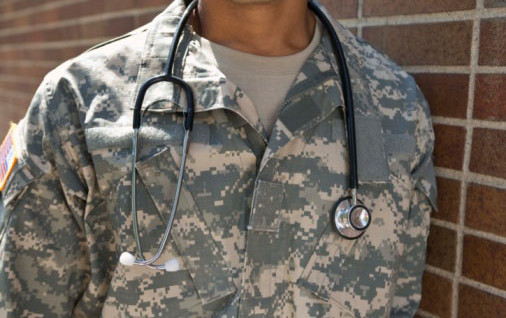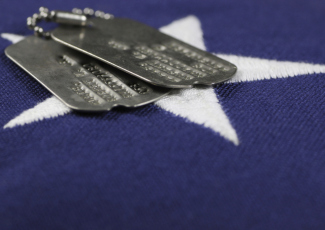Serving Military Students with College Credit for Heroes
By Reyna Gobel
July 17, 2014
How one community college helped American service members get college credit for saving lives overseas.
We spend a lot of time talking about the skills gap in this country: Employers have trouble filling open positions because they can’t find enough skilled candidates to do the work. It’s a big problem.
But skills aren’t the only issue that keeps students from landing good jobs. Job seekers often have the skills and the practical experience to succeed, but they lack the proper certifications to enter the workforce. Call it a certification gap.
It’s a problem that frustrated Christine Castillo, program director of surgical technology at Houston Community College, for years, especially as it related to her experience dealing with military service members.
She encountered so many veterans who had worked as trained surgical technicians in war zones in Afghanistan and elsewhere, only to be rejected from similar jobs back home.
The reason: certification.
The National Board of Surgical Technology and Surgical Assisting wouldn’t allow technicians to take its national certification exam until they had taken and passed certain required courses through an accredited program. With the exception of the U.S. Air Force, the military was not “accredited,” Castillo explains. That meant that service members who received surgical technician training through other branches of the military, including the Navy and the Army, often found themselves shut out of the job market.
“A service member could remove a bullet from someone’s head but couldn’t get a job at home,” Castillo says.
Fortunately, in 2011, circumstances began to change. Castillo was contacted by a group of Texas community colleges that had formed the College Credit for Heroes program, which grants college credit to military service members based on their military occupation and the service schools they attend. The program connects college advisers with veterans, helping them to locate and take the courses they need to complete an associate degree and receive proper certification.
Members of the military can visit the program’s website for a free evaluation to determine whether certain competency-based education programs consider military experience.
Castillo says she can award as many as 29 college credits to eligible service members. It’s not uncommon for students who served as surgical technicians in the military to complete an associate of applied science degree in allied health with as few as 10 semester hours.
The courses are online, so students in all 50 states can enroll in the program.
While new standards allow some members of the military to take the national certification exam without completing an approved curriculum, the College Credit for Heroes program provides an accelerated way for military members to get a degree — and potentially further their educations.
Five recommendations for colleges looking to build similar programs:
- Get your state agencies involved in what you’re doing; they’ll help with the framework for approving credits.
- Get buy-in from the college. You’ll need multiple levels of involvement and approvals.
- Study the education that the service members are receiving. You can do this by visiting the closest military medical training center.
- Develop a way of evaluating the military student experience.
- Decide on implementation guidelines.











